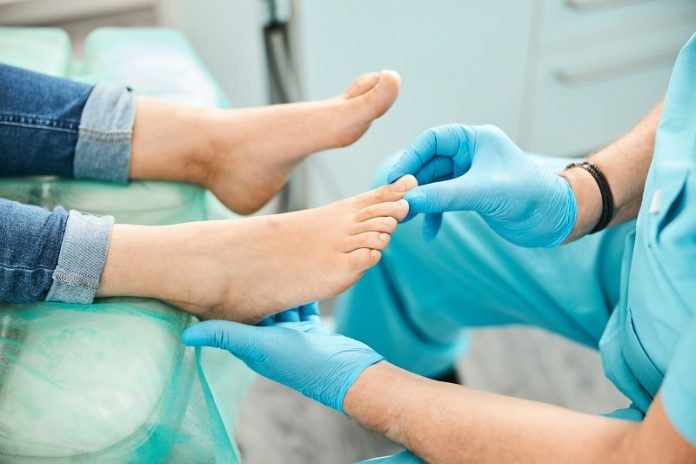
Your feet do more than help you walk—they can reveal a lot about your overall health.
According to Ginger Pettengill Freese, a nurse practitioner and clinical instructor at the University of Virginia School of Nursing, taking good care of your feet is essential.
When your feet hurt or aren’t working properly, it can lead to bigger health issues like obesity, diabetes, or even heart disease. As Freese says, “Happy feet, healthy life.”
Getting a pedicure can be a fun way to pamper yourself, but you need to be careful.
Make sure you visit a licensed salon that keeps their tools clean and properly sanitizes foot baths.
If you have diabetes, nerve problems, or heart disease, it’s best to avoid pedicures altogether because you might not feel a cut or sore that could lead to infection.
One trendy treatment to avoid is the “fish pedicure,” where fish nibble at your dead skin. It may sound fun, but it’s risky and can lead to infections because the fish can’t be properly cleaned between uses.
When it comes to calluses, they’re actually there to protect your skin. Instead of shaving them off, which could cause cuts or infection, you can soak your feet in warm water with Epsom salts and gently rub the callus with a pumice stone.
The key is to keep your feet clean and moisturized and to wear shoes that fit well to prevent calluses from forming in the first place.
Wearing socks during the day helps prevent sweaty feet and fungal infections, but Freese advises against wearing them to bed.
Your feet need time to breathe. If you notice a burning or scaly rash on your feet or between your toes, it’s likely athlete’s foot—a common fungal infection. You can treat it with over-the-counter creams or sprays, but wearing flip-flops in locker rooms and around pools can help you avoid it in the first place.
If your toenails turn yellow or brown, become thick, or start to crack, you may have nail fungus. While it’s not dangerous unless it interferes with walking, it can take months to treat. Prescription pills can help but may affect your liver, so some people try tea tree oil as a natural alternative. If over-the-counter treatments don’t work, it’s time to see your doctor.
Ingrown toenails often affect the big toe and can happen from injuries or tight shoes. To prevent them, trim your nails straight across and avoid cutting the corners too short. If one develops, try soaking your foot and gently lifting the nail with dental floss. If it’s very painful, see a healthcare provider who can safely remove the problem.
Gout is another common foot issue that causes sudden pain, redness, and swelling—usually in the big toe. It’s caused by high uric acid levels and is often linked to red meat, sugary drinks, and alcohol. A healthy diet with fruits, vegetables, and whole grains can help prevent flare-ups.
Lastly, wear the right shoes for your activity. Flip-flops are great for the pool but not for hiking or long walks. Always protect your feet, even from things you may not expect—like a snake on a trail. And don’t forget to apply sunscreen to the tops of your feet.
They may be easy to ignore, but your feet are your foundation, and taking care of them helps keep your whole body healthy.



